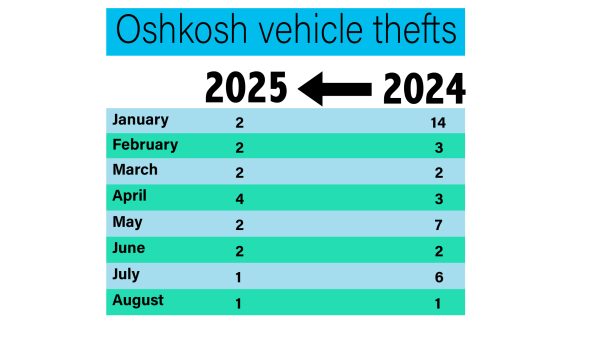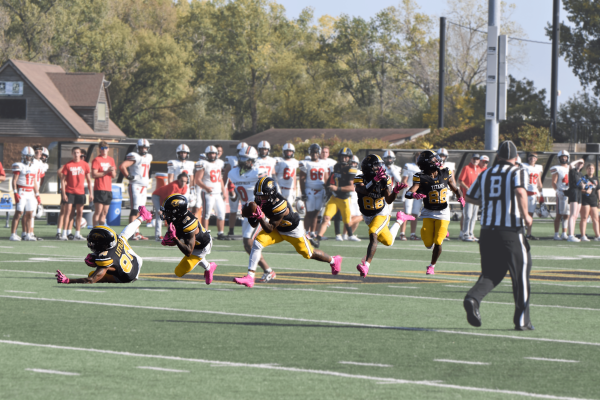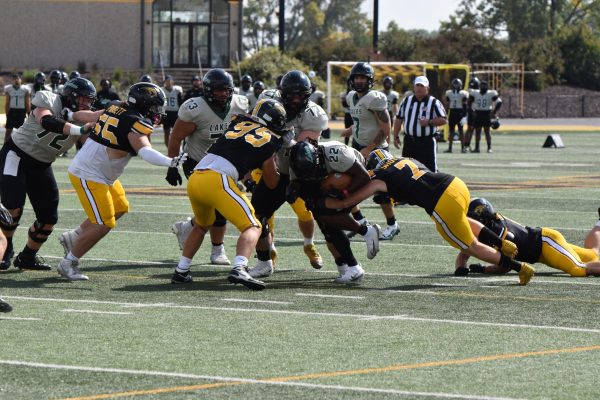The curious case of Hagen unfolded
A former UW Oshkosh student who was news editor of the Advance-Titan was forced to destroy documents pertaining to an investigative report on UWO business professor Willis Hagen’s behavior after the UW Oshkosh record custodian mistakenly provided the documents without redactions.
Hagen was mysteriously removed from one of his classes early in the spring 2017 semester, and students were told the class was canceled for the day. His course load was redistributed and other teachers took over those classes. The Advance-Titan subsequently filed a Freedom of Information Act request for records related to any closed investigation involving Hagen.
On Aug. 15, 2018, Alex Nemec, who graduated in December 2017, received the records about a previous incident from a UWO record custodian who mistakenly provided the documents without redactions.
After learning of her error, the record custodian instructed Nemec to destroy any and all copies of the unredacted records that were sent to him. Nemec originally refused to destroy the documents and continued to push for the right to publish their contents.
On Monday, the Advance-Titan received the same documents that Nemec had received, except they were redacted. They document a previous complaint against Hagen that dates back to 2013-15. The Advance-Titan immediately filed a Freedom of Information request for all documents pertaining to the most recent investigation, but has yet to hear back.
According to the earlier documents, Hagen made a faculty member feel threatened and uncomfortable.
On Nov. 10, 2015, the Office of Provost and Vice Chancellor of Academic Affairs charged professors Stephen Kercher and Roberta Maguire with the task of investigating a complaint against Hagen.
According to the complaint, Hagen made threats against the Department of Accounting for dropping one of his courses.
Allegedly, Hagen said, “That’s right…I am going to destroy accounting on this campus. I taught business and ethics in the graduate program for 30 years, and now they decide to not offer it anymore. It’s payback time!”
According to an unnamed source in the complaint, Hagen threatened three or four times to retaliate against any modification in the graduate program by telling 100 students to not major in accounting.
According to the documents, Hagen sent an email to several members of the department, threatening to get the provost, chancellor and Gov. Walker involved. Then, UWO College of Business Dean William Tallon replied to the email, stating, “Somehow we’ve got to find a way to control this guy. The poor guy needs help.”
In a letter dated Oct. 12, 2015 that was sent to Provost and Vice Chancellor Lane Earns, Hagen stated that be believed the complaint contains misstatements or statements that were taken out of context. In a Dec. 13, 2013 heavily-redacted email, Hagen apologized for sending the emails and noted he had been under a lot of stress. “It is not representative of who I am,” he wrote.
According to the complaint, the investigators believed that Hagen acted in a “hostile and threatening” manner. They also found it “odd and inappropriate” for Hagen to express concerns about the accounting major directly to students without addressing those concerns with the chairs.
Maguire, who was also the chair of the department of English at the time, explained the complaint process exists if a problem can’t be resolved at a lower level, such as in the appropriate University department.
“For a complaint arising from a member of an academic department, the provost’s office will first do an informal investigation to see if there seems to be some merit for looking at this as a complaint,” she said. “If it is decided that there seems to be enough substance there, the office will set in motion a formal investigation of the complaint.”
The provost usually appoints one or two people as investigators, and they receive a copy of the complaint and any related materials as well as talk to the people involved, Maguire said.
Maguire also said that it is understood that the role of the investigator ends after the report is delivered.
“After investigators complete the investigation and submit their report, the investigators are no longer a part of the process,” Maguire said. “They do not learn how their report was received or whether or what action was taken.”
Hagen was ordered to have no contact with the complainant except through the chair.
On Oct. 4, the Department of Justice filed an emergency motion to reopen the matter and a motion for injunction after learning the documents were released without redactions. On Oct. 19 during a telephone conference, it was decided that a motion to reopen the case would be scheduled for Nov. 2.
Nemec could face a restraining order and permanent injunction, prohibiting him from “publicizing, printing, or sharing, in any manner, whether verbally, in writing, or otherwise, the contents of those portions of the records subject to redaction” and furthering order Nemec to delete and destroy any and all copies of the records.
The pending restraining order against Nemec is set for an oral decision hearing on Nov. 21.











